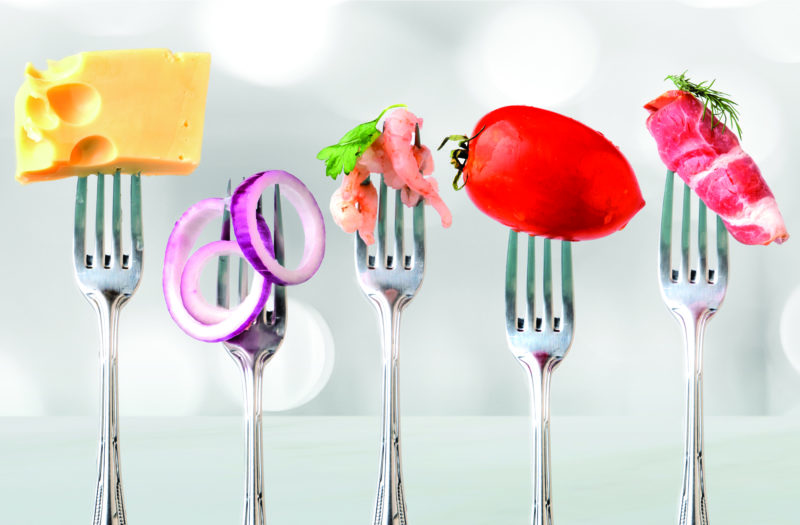As it currently stands, Canadian courts have not yet addressed the issue of copyright in recipes, but what can we learn from the leading caselaw on the subject from the United States? Although there are important differences between copyright law in Canada and the U.S., it seems likely that Canadian courts would at least consider the state of the law in the U.S. should the issue ever appear in front of them.
Leading U.S. Caselaw
The current U.S. leading case in this area of law is Publications International, Ltd. v. Meredith Corp. 88 F.3d 473 (7th Cir. 1996) [Publications]. In this case, the court stated that a functional list of ingredients cannot be considered original within the meaning of the Copyright Act. However, the court left it open as to whether a recipe that includes more literary or expressive elements might be protected by copyright law by saying the following:
“We do not express any opinion whether recipes are or are not per se amenable to copyright protection, for it would be inappropriate to do so. The prerequisites for copyright protection necessitate case-specific inquiries, and the doctrine is not suited to broadly generalized prescriptive rules” (Publications at 480).
Two years after Publications, a U.S. court took denying copyright protection to recipes a step further. In Lambing v. Godiva Chocolatier, 142 F. 3d 434 (6th Cir. 1998) [Lambing], the court stated plainly that recipes are not protected by copyright, completely ignoring the possibility that a recipe could contain enough expressive elements to make it copyrightable. This case has not been overturned or distinguished from other caselaw since it came out; however, Publications is still considered the leading case because, unlike Lambing, its reasoning has actually been followed by other cases since being decided.
Notably, three years after Lambing, the court in Barbour v. Head, 178 F. Supp. 2d 758, 764 (S.D. Tex. 2001) followed Publications’ lead by analyzing the facts of the case and the specific recipe at issue. The court decided in favour of the plaintiff claiming copyright protection over her recipes because the recipes were full of creative commentary that the defendant reproduced verbatim in his cookbook. These comments were considered original literary expressions and thus, were afforded copyright protection.
Canadian Law
Under Canadian copyright law, facts, formulas, and ideas are not protected by copyright. This means that just like in the U.S., recipes which only list ingredients (facts) and the steps that one takes to complete the recipe (formulas) are likely not protected by copyright in Canada.
Similarly to U.S. copyright law, Canadian copyright law does protect substantial literary expressions, which can include descriptions, illustrations, anecdotes, commentaries, or compilations among other examples. This means that it would likely be an infringement of copyright to reproduce a recipe that includes a substantial literary explanation.
It would also likely be an infringement of copyright to reproduce a recipe as it is arranged in a recipe book, as copyright subsists in the particular way that that recipe is laid out on the page. If the selection and arrangement of materials in a cookbook are creative, the selection and arrangement themselves are protected by copyright as a compilation. For this reason, it would be an infringement to use a photo or scan of the actual page from a recipe book including the fonts, formatting, and images associated with that recipe. The same would be true of the cover of a recipe book. However, even if the cookbook’s arrangement and selection is a compilation that holds its own protection, the factual lists of ingredients and formulaic instructions in the book are still not protected by copyright.
The term of copyright protection in Canada is currently to the end of the calendar year 50 years after the death of the author. Thus, any recipe the author of which died more than 50 years ago is currently not protected by copyright. Once a work is no longer protected by copyright, it is part of the “public domain” and anyone can use it. However, it should be noted that the term of protection in Canada will soon be extended to the life of the author plus 70 years as part of the implementation of the Canada-United-States-Mexico Agreement (CUSMA).
Takeaways
Based on current Canadian copyright law and the leading caselaw on the subject in the U.S., a list of ingredients or matter-of-fact instructions regarding the process of creating a recipe is unlikely to be protected by copyright law. However, should a recipe that is not part of the “public domain” include sufficient literary expression by way of creative written portions or a particular layout and images that supplement the listing of ingredients and instructions, that original content is likely to be protected by copyright law.
Learn more about our copyright practice here.
Kiera Boyd practices in the area of communications, with a particular emphasis on copyright.
Kiera graduated from the Faculty of Law at the University of Western Ontario. Prior to law school, she completed an Honours Bachelor of Arts in English Literature with a minor in Political Science at Queen’s University. During her summers throughout school, Kiera worked as an Administrative Assistant at a large national firm, where she was part of the Intellectual Property Team.


